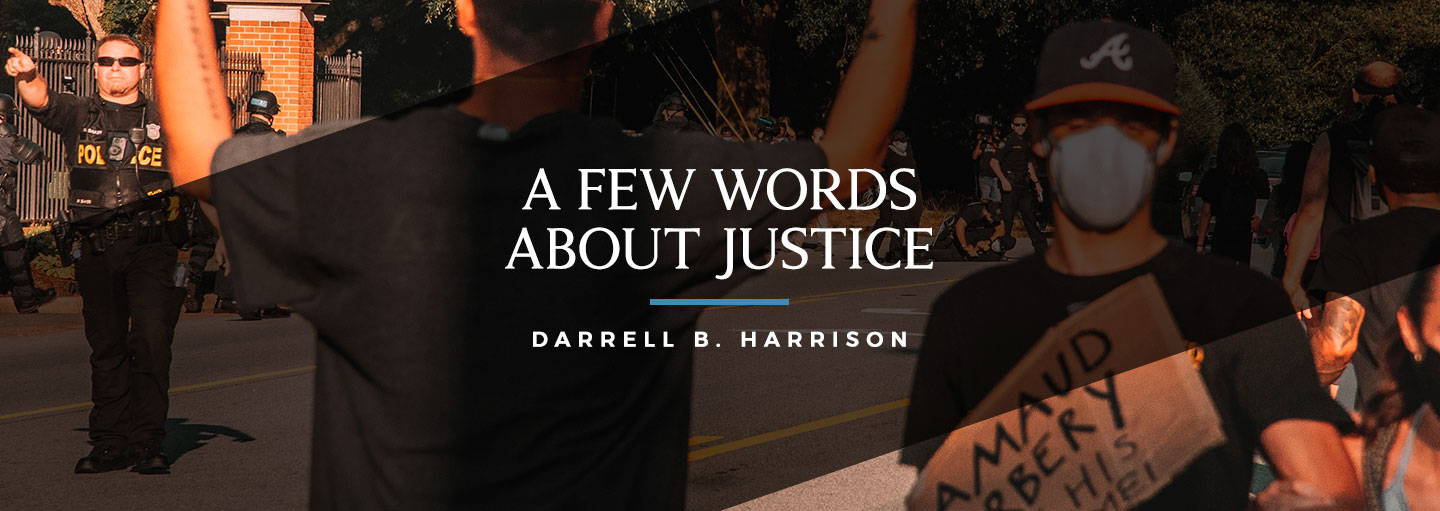Against the backdrop of various media reports concerning the killing of Ahmaud Arbery, and the subsequent manifold calls that his alleged killers be brought to justice, as a black Christian who has been following this developing story in the background, I felt compelled to offer the following unsolicited commentary.
I am of the opinion that the church must recover a biblical understanding of both justice and injustice so that each is discerned objectively—as God’s Word defines those terms—by God’s people through the universal lens of the Imago Dei (Image of God) so that, consequently, any indignation we may feel over a perceived injustice is borne from a purely righteous desire that God—not we—will be vindicated for the sinful violence carried out against those who, like you and I, have been created in His image (Genesis 1:27; 5:2; Psalm 10:18; 82:3).
I am speaking specifically with regard to perceived injustices committed not against ourselves, but against others.
You can read more of Darrell B. Harrison’s work by visiting his website.
Yes, there are passages of Scripture where servants of God petitioned Him for personal vindication (e.g. Psalm 7:8; 26:1; 43:1). But personal exculpation is not what I’m talking about here. Nevertheless, the Christian who would entreat God for personal redress must first see to it that his or her own life is free from any unrepented sin. For as the psalmist declares in Psalm 66:18, “If I regard wickedness in my heart, the Lord will not hear.”
Injustice cannot be understood objectively—and by “objectively” I mean biblically—apart from an equally objective understanding of what justice is.
“Mercy sweetens all God’s other attributes. God’s holiness without mercy, and his justice without mercy were terrible. When the water was bitter, and Israel could not drink, Moses cast a tree into the waters, and then they were made sweet. How bitter and dreadful were the other attributes of God, did not mercy sweeten them! Mercy sets God’s power on work to help us; it makes his justice become our friend; it shall avenge our quarrels.” Thomas Watson, A Body of Divinity
When, as Christians, you and I deviate from God’s equitable and universal standard of what ‘justice’ and ‘injustice’ are, we risk becoming partakers in the sin of partiality (see Proverbs 24:23) because, as fallen and fallible human beings, we invariably will end up drawing our own subjective conclusions about certain situations, having framed those conclusions through the prism of our own sinfully deceptive emotions and presuppositions (see Proverbs 18:13; 28:26).
“For in the way you judge, you will be judged; and by your standard of measure, it will be measured to you.” Matthew 7:2
The justice God demands of us is rooted in His nature, not ours (see Deuteronomy 32:41). God’s desire that you and I treat one another justly is grounded in the universal reality that each of us bears the image of God (imago Deo), not the image of man (imago homo).
Indeed, Scripture clearly teaches that the people of God are to speak for those who cannot speak for themselves (see Proverbs 31:8-9). But the impetus to obey that command must be grounded in nothing other than that the mute, the unfortunate, the afflicted, and the needy all are image-bearers of God, not that they have some particular affinity with us or us with them (e.g. ethnicity, socio-economic station).
“Justice may at times leave the courts of man, but it abides upon the tribunal of God.” Charles Haddon Spurgeon
The concept of justice has an origin and that origin is God, not man. It is crucial that God’s people understand that. God is altogether pure, holy, and righteous by nature. Conversely, you and I are not (see Ecclesiastes 7:20; Romans 3:23).
As followers of Jesus Christ, if our concern for justice is filtered through a lens of partiality of any kind we are committing sin (see James 2:9).
God is no respecter of persons (see Romans 2:11), and as bearers of His image neither should we (see Leviticus 19:15).
God is sovereign over all that occurs in His world—the evil and the good (see Proverbs 15:3)—and because God is innately holy, it is His own character that will see to it that His righteous and perfect justice prevails—either in this life or the next (see 1 Timothy 5:24).
“For the love of Christ controls us.” 2 Corinthians 5:14





















